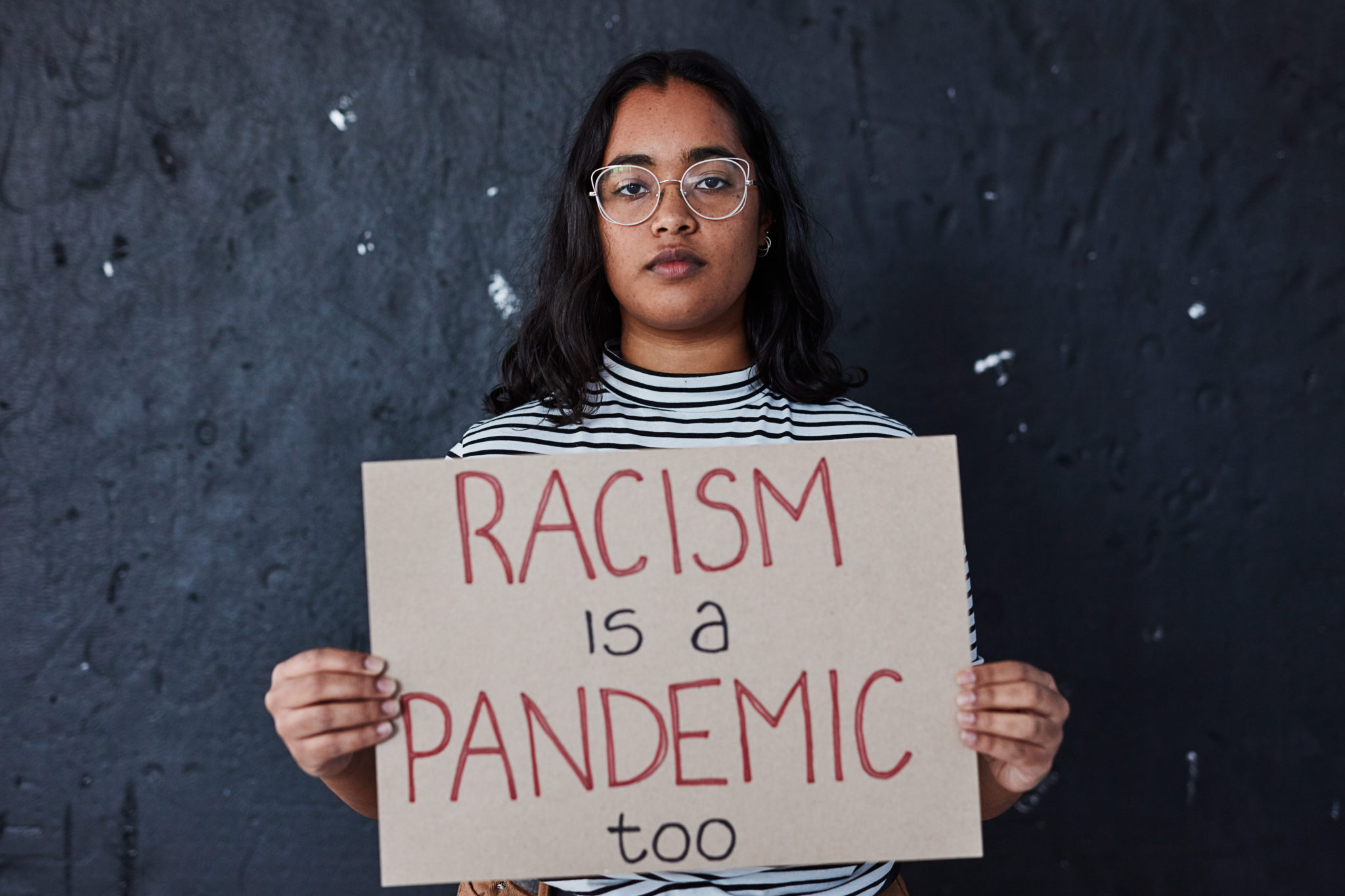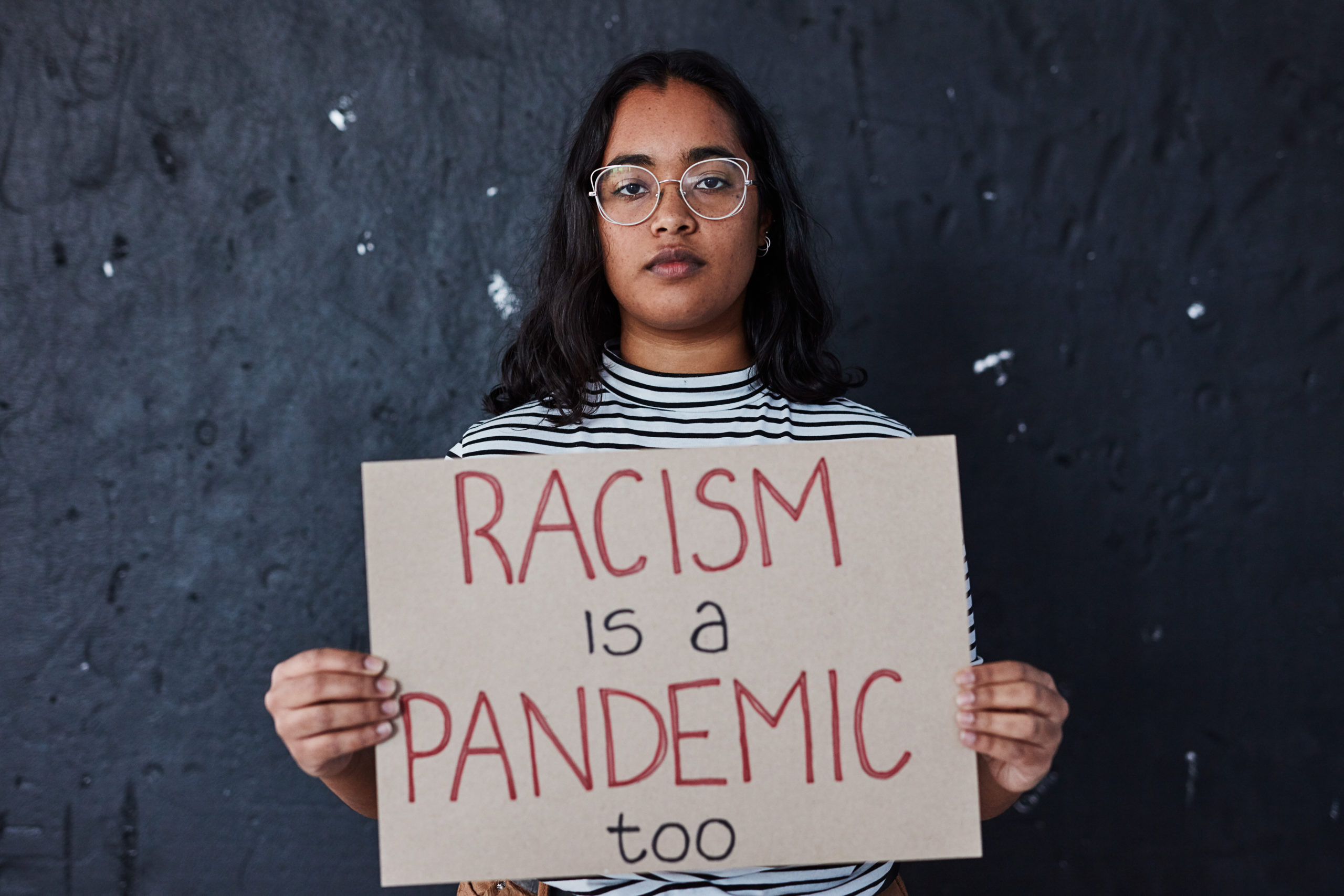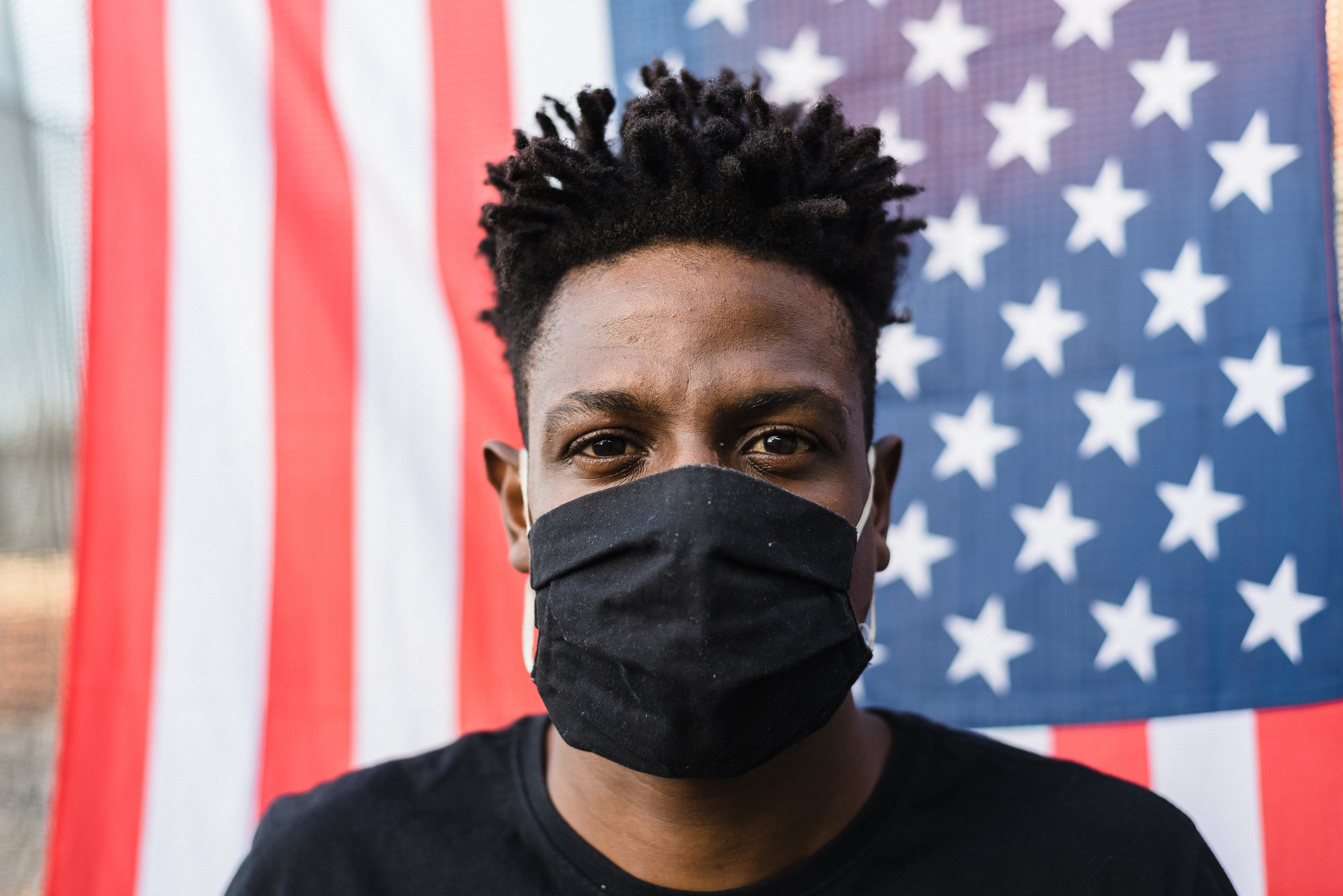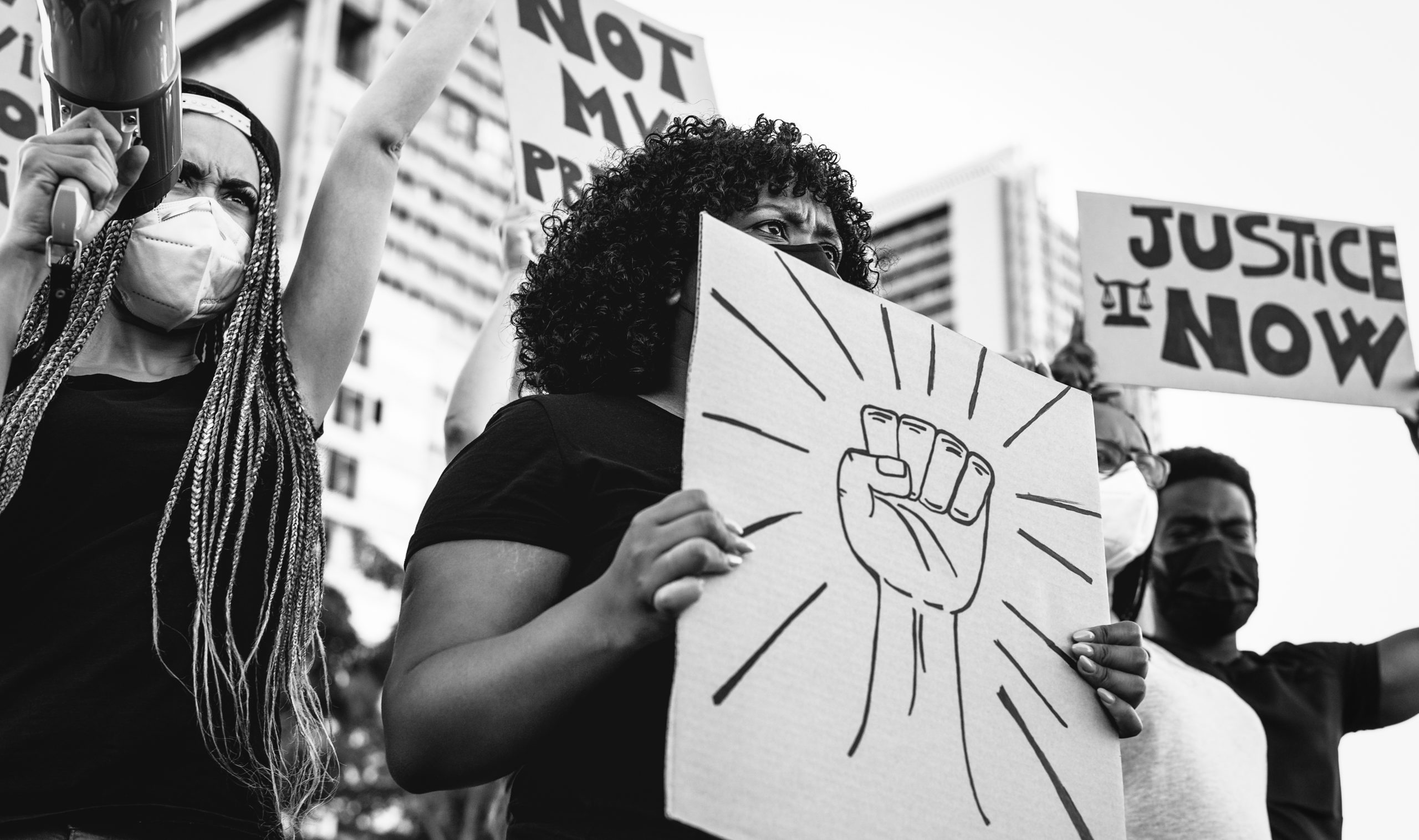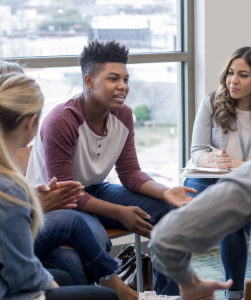How Racial Injustice in the United States Affects the Mental Health of African Americans
While the entire world is grappling with the devastating effects of COVID-19, our country in particular is in an even more fragile state. Black people all over the United States (and throughout the world) feel the impact of being exploited property for hundreds of years and the horrific discrimination that followed. Still to this day, Black lives don’t matter in the eyes of the law. The current American justice system was not built to serve Black people and other people of color. It’s working just as it was designed. This was demonstrated in a traumatizing video of a police officer taking the last breath of an unarmed Black man. Again.
The United States is seeing the most widespread, sustained unrest it has seen in more than 50 years. At least 75 cities across the country have seen protests over the past couple of weeks. The proximate cause was the killing of George Floyd, a 46-year-old black man. Floyd died after a police officer pressed his knee into Floyd’s neck for nearly nine minutes. Whatever side of the political spectrum you fall on, whether you support or disagree with the uprising in the streets, we must acknowledge the very real and very dangerous racism still permeating throughout our society and that Black lives should matter.
No justice, no peace. While this applies to the current social justice movement of Black Lives Matter, this also applies to the mental wellness of the black community. How can black folks be at peace within ourselves until we feel safe?
Health Care and Mental Health Care Barriers in the Black Community
During these times of unrest, it’s important to acknowledge the discrepancies of quality of care and access to health care for Black Americans. 11% of African Americans aren’t covered by insurance. When black people do get medical care of any kind, they often don’t have the best experience. Many healthcare providers are not culturally competent or mistreat Black folks. African American patients are not awarded the same sympathies as White patients. This can be demonstrated in the fact that nearly 60% of COVID-19 deaths have been African Americans according to CNN. Also, pregnant Black women are three times more likely to die from pregnancy related complications.
When it comes to mental health care, African Americans are more likely to use the emergency room or primary care rather than go to an actual mental health practice. Black people are less likely to be offered medication management or psychotherapy during doctor’s visits. Other barriers that prevent black folks from seeking mental health care are stigmas around therapy and mental illness in general, the distrust of the healthcare system, lack of Black or other POC providers, and being underinsured.
Black Americans are also often misdiagnosed with schizophrenia and are less likely to be diagnosed with a mood disorder. African Americans with schizophrenia, bipolar disorders, or other psychoses are more likely to be incarcerated than people of other races. Not only do black people have to deal with the healthcare barriers of systematic racism, they must cope with conditions that are specific to them.
Racial Battle Fatigue
Racial Battle Fatigue can actually lead to mental and physical symptoms. Symptoms of RBF include anxiety, suppressed immunity, ulcers, insomnia, headaches, high blood pressure, and chronic pain in injuries that are healed. Experiencing these stress response symptoms can lead to a lack of self-esteem or self-worth.
Racial Battle Fatigue: “The cumulative result of a natural race-related stress response to distressing mental and emotional conditions. These conditions emerged from constantly facing racially dismissive, demeaning, insensitive and/or hostile racial environments and individuals.” Racial Battle Fatigue was coined by Williams Smith, a Critical Race Theorist. An example of something that seems small but could be triggering to a POC is a microaggression.
Microaggressions are insults or back-handed compliments. When people say to Black folks, “Wow, you’re so articulate!” or “You speak like a white person,” these are microaggressions. Touching a Black person’s hair without consent is a non-verbal microaggression. These microaggressions usually happen unconsciously, but constantly having to deflect stereotypes and discrimination in spaces dominated by White people weigh heavy on people of color.
Multigenerational Trauma
Post Traumatic Slave Syndrome (PTSS): a result of how the African American population has experienced multigenerational trauma from centuries of slavery and how they continue to experience oppression and institutionalized racism to this day. Black people experience the mental and behavioral adaptations of their enslaved African ancestors that were necessary for them to survive while in captivity. The ongoing oppression of African Americans has resulted in generational manifestations of ever-present anger, vacant esteem, and racist socialization.
Vacant esteem is caused by society putting Black people in a place of inferiority that results in their lack self-worth. This is different from low self-esteem because it is collective in context so Black people can think others in their racial group lack value as well. There is a study published in the Sage Journals titled The Misunderstood Schema of the Strong Black Woman where researchers concluded that the “Strong Black Woman” schema was associated with maladaptive perfectionism which is linked to low self-compassion and low use of collective coping. This self-hatred leads to negative psychological outcomes.
Ever present anger is intense anger that is caused by stressors that aren’t so much about the individual, but it’s reflective of how the collective community experiences transgenerational trauma amongst African Americans.
Racist socialization is the adoption of the racist beliefs of dominant White culture by Black folks (ex. thinking dark skin/kinky hair is bad.)
Police Brutality and Black Mental Health
As a Black woman myself, every time a Black person is killed by the police, I get traumatized and re-traumatized. Now that we can all record videos and take photos on our smartphones, this is especially difficult to deal with. I have to see actual footage of violence against my people. No matter how many times this happens, it’s impossible not to be affected by it.
“Racism isn’t getting worse, it’s getting filmed.” – Will Smith
Many studies demonstrated significant associations between police interactions and mental health. Psychological distress, PTSD, psychotic experiences, depression, anxiety, and suicidal ideation are a few associations. Many African Americans perceive shootings as hate crimes and terrorism which is partially due to the feelings and beliefs linked to historical experiences of slavery and racism through multigenerational socialization/trauma. Exposure to police brutality triggers feelings that parallel historic and current victimizations.
Trauma Coping Skills
As we challenge and understand the depth at which racism has been integrated into our nation’s foundation and even prior, it is critical to care for our nervous systems, minds, and overall wellness. We must do this in order to reduce the chance of re-traumatization.
Here is a list of trauma coping skills you can try:
- Let yourself grieve.
- Be kind to your body by eating healthy and exercising.
- Get enough rest. This does not have to just be sleep. Allow yourself to truly relax your body and mind.
- Ask for support.
- Don’t beat yourself up for not being as productive.
- Try to be understanding of others’ reactions because not everyone will react to trauma the same way.
- Take a break from or limit social media/traditional media consumption.
- If you have children, talk to them about trauma and be supportive of their feelings.
- If you experience severe traumatic stress symptoms, please seek help from a professional.
Sage and Empathetic Healthcare
As an organization whose mission is to facilitate the mental and physical well-being of its community members, it is critical we perceive these struggles as a human rights issue. Every day, we serve individuals who are already at a disadvantage because of their mental health issues and the stigma they carry. Many of those individuals belong to marginalized groups who face systemic discrimination/racism in countless ways and have for generations.
It is our responsibility to see and hear these people and empower them to fulfill personal agency concurrent with teaching them to cope in an often unfair and unjust world.
We will continue fulfilling that purpose with even more resolve, meet hate and oppression with dialogue and understanding, and offer to our patients what they often rarely encounter: radical empathy.
Citations
- McLeod, M.N., Heller, D., Manze, M.G. et al. Police Interactions and the Mental Health of Black Americans: a Systematic Review. J. Racial and Ethnic Health Disparities 7, 10–27 (2020). https://doi.org/10.1007/s40615-019-00629-1
- Burrowes, Akinlana, “Post Traumatic Slave Syndrome A Literature Review on African American Community Healing and Expressive Arts Therapy” (2019). Expressive Therapies Capstone Theses. 200. https://digitalcommons.lesley.edu/expressive_theses/200
- Smith, S. (2018). POST TRAUMATIC SLAVE SYNDROME AND MENTAL HEALTH SERVICE USE OF AFRICAN AMERICANS: A SYSTEMIC INTERPRETATION. (Electronic Thesis or Dissertation). Retrieved from https://etd.ohiolink.edu/
- Race, Gender & Class . 2017, Vol. 24 Issue 1/2, p133-159. 27p. Murty, Komanduri S.; Vyas, Ashwin G.
- Liao, K. Y.-H., Wei, M., & Yin, M. (2020). The Misunderstood Schema of the Strong Black Woman: Exploring Its Mental Health Consequences and Coping Responses Among African American Women. Psychology of Women Quarterly, 44(1), 84–104. https://doi.org/10.1177/0361684319883198
- American Psychiatric Association. 2017. Mental Health Facts for African Americans. Psychiatry.org
